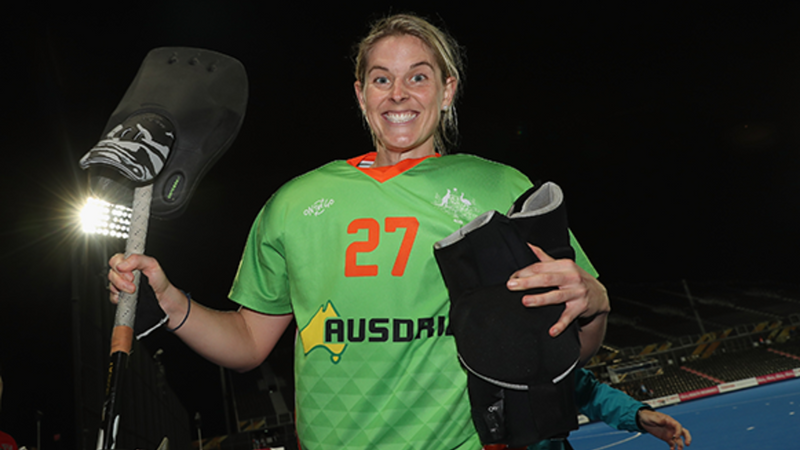
As a sport, hockey demands a lot of the human body. Both aerobic and anaerobic systems are called into play throughout a 60 minute match or a training session. Sprinting, jogging, hitting, tackling, dribbling – all activities that demand energy. Combine that with a need to maintain high levels of concentration until the final whistle, plus the need to be in a psychological state that allows fast reaction times – it is clear that servicing a players energy systems is a top priority for a team’s support staff.
We caught up with Australia’s Rachael Lynch, the 2019 FIH Goalkeeper of the Year, who shared some of her culinary likes and dislikes as well as some advice on how to shop for a healthy diet.
How much importance do you give to nutrition as part of your preparation? Is it a big part or just something that is necessary?
Rachael Lynch: “As an athlete, nutrition is something that has always been high on my list of priorities and things that I need to attend to. I think as a younger athlete it is something you feel is out of your control. Maybe you have mum and dad cooking food for you but, as you get older, you can see the importance of it, not just for fuelling your body but for things like recovery and injury prevention. Also hydration and things like that. I have spent a lot of time trying to understand my body and understand food so I can make choices that will help me perform at the best level I can.”
How easy is it to stick to nutritional guidelines?
Rachael Lynch: “Over the years I have been fortunate to work with dieticians and nutritionists through the various programmes I have come up through. I have never had an issue with food or my diet but having that expertise has given me the opportunity to learn a little bit more. I have had food plans in the past where your whole weekly diet is given to you for you to follow, but I have found personally that is not really sustainable. I am someone who is quite social so I like to eat out or eat at friends’ houses or have people over so a diet plan makes that a little bit restrictive. The easiest thing is to eat as I normally would and then write everything down and send it to our nutritionist for her feedback. That is a really good tool to keep myself on track and have a good understanding of whether I am getting the right amount of certain foods, the right amount of food and hydration. From their I can tweak it so I am maximising the food that does go into my body.”
When you are out of season and relaxing, what is your biggest treat?
Rachael Lynch: “Now, I won’t lie, I’m not perfect, I do have as sweet tooth but the beauty of training the way we do and being disciplined most of the time means I can allow myself some snacks and treats every now and again. I’m someone who likes to have dessert, or something sweet after I finish. I try to make sure I have fruit and yoghurt, or something a little bit healthier, but, I like chocolate, muffins, scones. These are all a weakness for me but if I have something like that, I go for a walk or there are other ways you get around it. If you eliminate certain things from your diet, hey just become more appealing.”
What does a typical menu look like on a training day?
Rachael Lynch: “On a typical training day for me, we train in the morning, so when I wake up, I will have some cereal or something with yoghurt and milk. My drink of choice is a Chai Latte, so I try to have the tea version of that once or twice a day. Lunch would be rice cakes with ham, cheese, tomato on them, or maybe a salad. It sort of depends where I am. If we finish training at 10.30am, I will come home and have eggs on toast, something a bit breakfast-like. But then I won’t eat lunch. I might have another snack in the afternoon before our next session.
“Dinner for me depends on where I am. If I am eating alone, I tend to be pretty boring, meat and three vegetables. I am not super-creative, in those circumstances I eat for purpose not pleasure. But if I eat out, then I am really open and enjoy any food. I don’t restrict myself in that sense. I eat pretty well most of the time and have a well-rounded diet, so I never feel guilty about the food I am eating.”






















